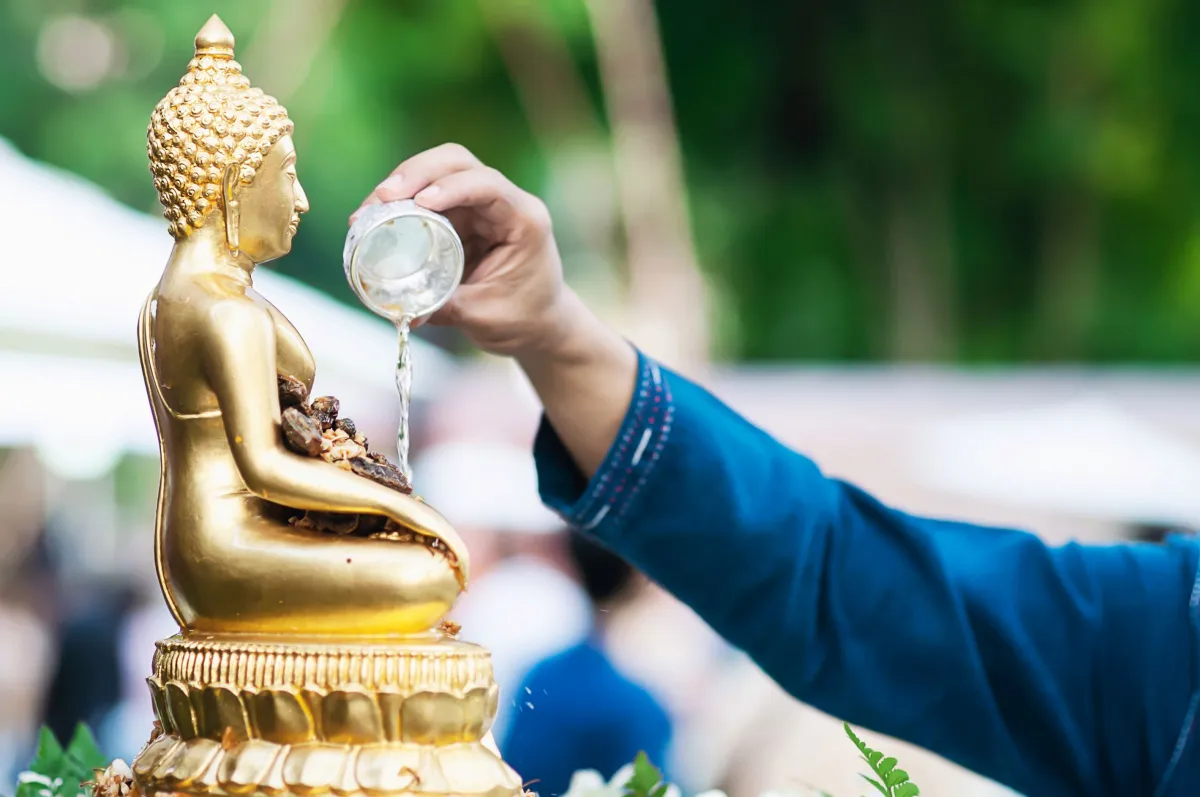
The Songkran festival falls on the 13th, 14th, and 15th of April every year. It is an ancient tradition of Thai people that has been passed down since ancient times. There are beautiful, gentle, hospitable traditions full of the atmosphere of gratitude, fun, warmth, and mutual respect using water as a medium to create a sense of community. According to the ancient belief, Songkran is considered Thailand's New Year's Day, with a duration of three days.
The first day is 13 April, which is called Maha Songkran Day. It is the day when the sun moves from Pisces to Aries and is also considered Thailand's New Year's Day. The word "Songkran" is a Sanskrit word meaning "movement." It refers to the transition to the new year according to Thai beliefs and some other countries in Southeast Asia.
14 April is known as "Nao" or "Nao Day" in various temples. There will be preparations for making Songkran merit, including carrying sand into the temple to build sand pagodas. On this day, the ancients believed that it was forbidden to speak ill of each other or to quarrel, as it would bring bad luck throughout the year.
April 15th is known as "Tha Loeng Sok" or "Phya Wan Day." It is the day when people go to the temple to make merit and dedicate merit to those who have passed away. There is a water-pouring rite, “Rod Nam Dam Hua,” and blessings given by elders in the community, as well as building sand pagodas.
As for Maha Songkran Day, it is a festival that has been influenced by India's Holi festival. However, Thailand's Songkran has changed from a color-splashing festival to a water-splashing one, to correspond with the extremely hot weather in April. In another aspect, it is also a belief that it can wash away the bad things, which has led to the popular water-splashing and powder spreading during the Songkran festival. There is no punishment or anger over this playfulness during Songkran, and it is not only celebrated in Thailand, but also in neighboring countries such as Myanmar, Cambodia, Laos, as well as in certain areas of Vietnam, China, Sri Lanka, and India.